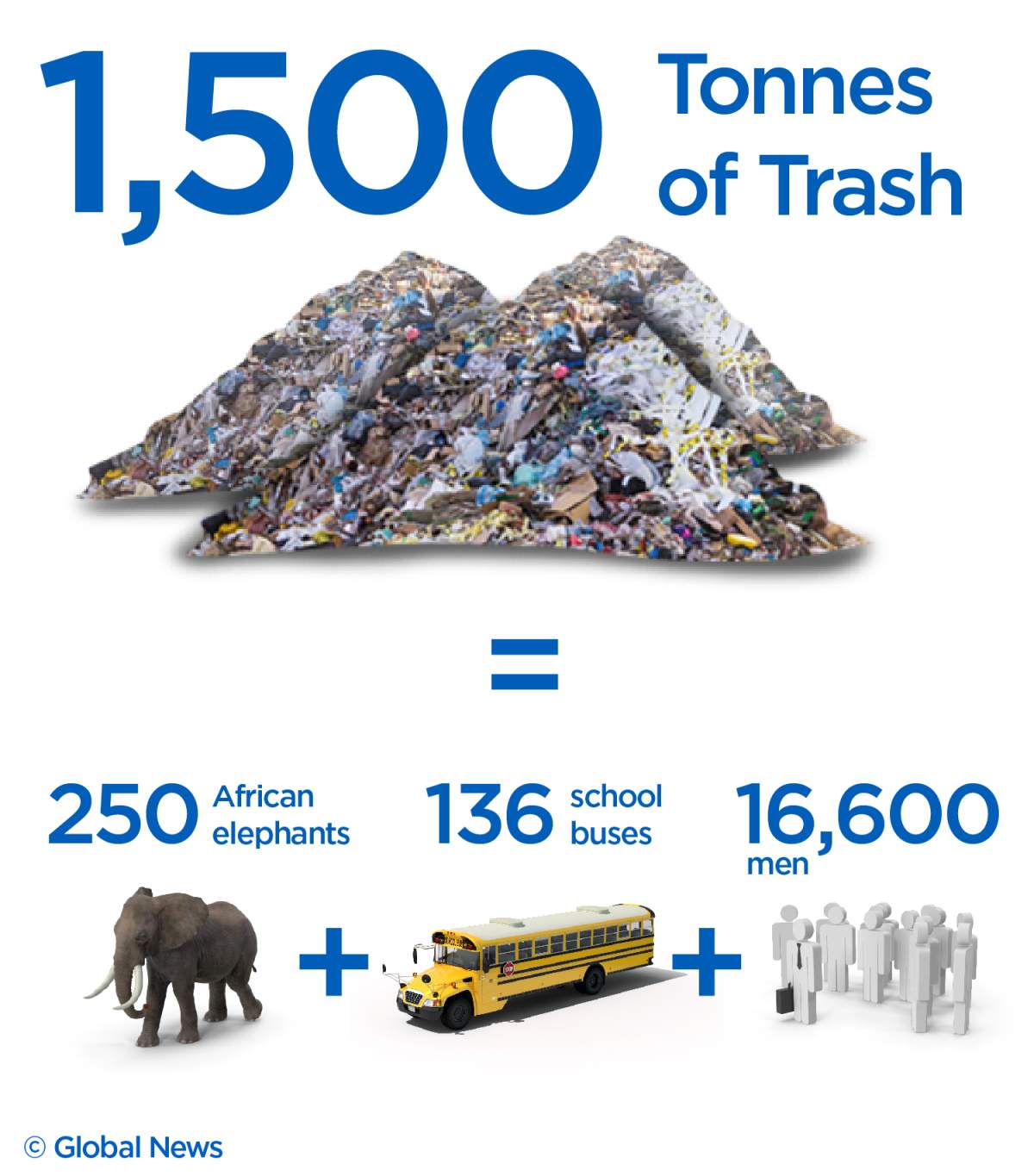A cargo ship has arrived in a northern port in the Philippines and is ready to return a massive pile of rotting garbage to Canada — 1,500 tonnes to be exact.

Sixty-nine containers of trash will be loaded on the M/V Bavaria starting Thursday night and it will head to Vancouver on Friday, according to administrator Wilma Eisma of Subic Bay Freeport.
For years, the Philippines’ President Rodrigo Duterte has demanded Canada takes back its garbage, which he says was shipped illegally to Manila.
Chronic Inc., a plastics exporter based in Ontario, sent the containers, supposedly filled with recyclable Vancouver plastics, to the Philippines in 2013 and 2014.
But upon expectation, the shipment contained a mixture of plastics, metals, paper and household garbage — including adult diapers and kitchen waste.
Last month, Duterte threatened to “declare war” on Canada if it didn’t take back its trash and recently said he would forcibly ship back the containers of garbage.
Now that the trash seems to be officially heading back to Canada, the question remains, where will the waste go?
WATCH: Canada’s recycling problem revealed in trash dispute

What will happen to the trash?

Get breaking National news
On May 22, Canada said it had hired a company, Bollore Logistics Canada, “to safely bring the waste back to Canada as soon as possible.”
“The removal will be complete by the end of June, as the waste must be safely treated to meet Canadian safety and health requirements,” the statement said.
The “safe and environmentally sound disposal” of the garbage in Canada will happen before the end of the summer, the government said, adding that Ottawa will cover the costs of the transfer, shipment and disposal of the waste.
A government spokesperson told Global News that all 69 containers have been fumigated.
According to Metro Vancouver, it will dispose of “approximately 1,500 tonnes” of the waste at its Waste-to-Energy Facility in Burnaby.
“The Waste-to-Energy Facility was selected by Environment and Climate Change Canada as the preferred choice for disposal due to its proximity to the Port of Vancouver and its designation as a facility authorized to receive waste under the Canadian Food Inspection Agency’s International Waste Directive,” the regional district said in a statement.
“Strict handling and disposal criteria must be followed whenever there is a risk of biological or agricultural contamination,” Jack Froese of Vancouver’s Zero Waste Committee, said.
WATCH: Malaysia now also sending back Canadian garbage

He said the facility is the best option for the disposal of the trash because there isn’t a potential for contact with wildlife, “and no potential for waste to leave the facility following disposal.”
The estimated 1,500 tonnes of waste is equivalent to about two days’ worth of processing capacity for the facility, according to the statement.
The shipment is expected to arrive in Canada at the end of June.
How much trash is it?
The standard shipping container size is around eight feet wide, 8.5 feet high and 20 feet long. That means it can hold an average of 1,169 cubic feet of garbage.
And if there are 69 containers, that is the equivalent of 80,383 cubic feet of garbage heading back to Vancouver. That amounts to the size of an Olympic-size swimming pool, which is around 88,286 cubic feet.
The government says the trash amounts to 1,500 tonnes. If that’s the case, that means the weight of the garbage is equal to 250 African elephants, 136 school buses and 16,600 men.
— With a file from The Canadian Press










Comments
Want to discuss? Please read our Commenting Policy first.